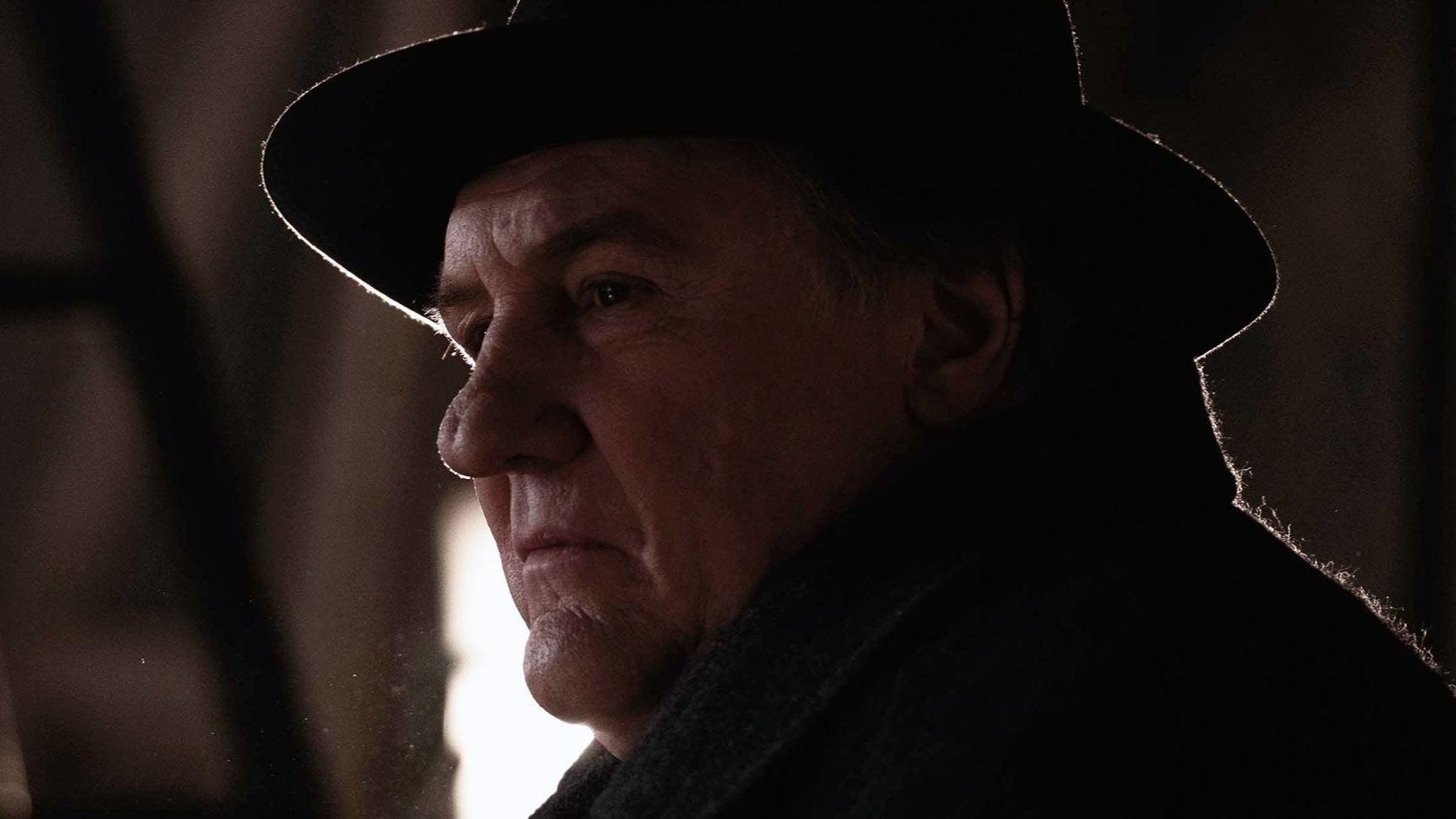Maigret
The return of Patrice Leconte marks the welcome reappearance of Georges Simenon’s detective in the guise of Gérard Depardieu.
A nose for crime: Gérard Depardieu
This comes as a surprise. Chief Inspector Maigret, the celebrated character created by Georges Simenon and featured in over seventy novels, has never disappeared from sight as evidenced by fresh editions of the novels and even by recent adaptations on British television unexpectedly starring Rowan Atkinson. Indeed, it is the case that over the years numerous films and television treatments have appeared and the list of actors who have played Maigret includes Jean Gabin, Richard Harris, Charles Laughton, Michael Gambon, Rupert Davies and many more besides. Nevertheless, even though Patrice Leconte’s 1989 Simenon adaptation Monsieur Hire (a work which did not feature the detective) is one of his best films, one would not have expected him to turn to Maigret this late in his career. But, having now done so both as director and as co-author of the screenplay, Leconte has made it in distinguished company: the photographer is Yves Angelo, the editor is Joëlle Hache, the music score is by Bruno Coulais and the latest Maigret is Gérard Depardieu.
Maigret and the Dead Girl, the novel on which the film is based, dates from 1954 and, wisely, Leconte has kept it rooted in that period. However, that setting does not prevent the inclusion of what now feels like a significant moment: it’s when Maigret casts a critical eye on the way in which films portray detective work and dismisses them as being all action and car chases. If that could be said then, it is all the more apt now and here the words stand as a guide to what Patrice Leconte is offering us instead. Some critics have described Maigret as a minimalist film as though it told a tale in which little happens, but I found that misleading. The film does deserve that term if minimalist is taken to mean an absence of big set pieces but the story that unfolds here does so at a good pace and at 88 minutes the material is never overstretched.
This approach is one that is admirably faithful to the novels. Simenon was always interested in his characters, the people caught up one way or another in some criminal investigation. Maigret himself is the quietest, most thoughtful of detectives, a man reluctant to judge but an earnest seeker after the truth behind a crime whatever it may be. In this case the victim is one Louise Louvière (Clara Antdons), one of those young women who come to Paris with vague hopes of a better life but who in this instance ends up a corpse with multiple stab wounds. The body is found in the Batignolles area of Paris and one odd fact stands out in that she is wearing a surprisingly expensive evening gown which is now well and truly bloodied. However, there is no clue as to her identity and a deal of investigation is required before Maigret is able to confirm that her name was Louise Louvière.
As the story develops it becomes a tale of corruption and class distinctions, a fact which ensures that this period peace is not without relevance to our own times. Like Louise, Betty (Jade Labeste) is a girl who could be endangered as she seeks to get by in the city and she comes to play an important part in the story. But so does the wealthy widow Mme Clermont-Valois (Aurore Clément) together with her son Laurent (Pierre Moure) who is engaged to Jeanine, an actress (Mélanie Bernier). Step by step, Maigret gets nearer to finding out exactly what did happen to Louise and why, but the film no less importantly captures the atmosphere of Paris in the fifties. There is too an awareness of life’s disappointments, of loneliness and inner suffering and this, all the stronger for never being overstated, even extends to events in this investigation that reflect a tragedy that had marked Maigret’s own life. Indeed, the only thing that seems very slightly out of character with what we expect of a Maigret novel is an echo of Macbeth which occurs in the film’s climactic scene but which for all I know is to be found in the original.
Maigret is in a sense a modest work (it hardly qualifies as a masterpiece) but it is a deeply satisfying recreation on film of what made Simenon’s novels so very much their own thing. All the players have the right approach, not least Depardieu who as Maigret gives the least starry of performances by sinking himself into the character. At one stage apparently Daniel Auteuil might have taken the role, but Depardieu seems the more natural fit. One may be disturbed and saddened by press reports about the actor’s private life but the quality of his latter-day work both here and in such recent releases as Robust remains worthy of his outsize talent.
MANSEL STIMPSON
Cast: Gérard Depardieu, Jade Labeste, Mélanie Bernier, Aurore Clément, Pierre Moure, Clara Antdons, Anne Loiret, Hervé Pierre, André Wilms, Loudia Gentil, Bertrand Poncet, Philippe du Janerand, Jean-Paul Comart.
Dir Patrice Leconte, Pro Jean-Louis Livi and Philippe Carcassonne, Screenplay Jerome Tonnerre and Patrice Leconte, from the novel Maigret et la jeune morte by Georges Simenon, Ph Yves Angelo, Pro Des Loic Chavanon, Ed Joëlle Hache, Music Bruno Coulais, Costumes Annie Périer..
Ciné@/F Comme Film/SND/Scope Pictures/Canal+/Ciné+-Dazzler Media.
88 mins. France/Belgium. 2022. UK Rel: 1 September 2023. Cert. 15.


